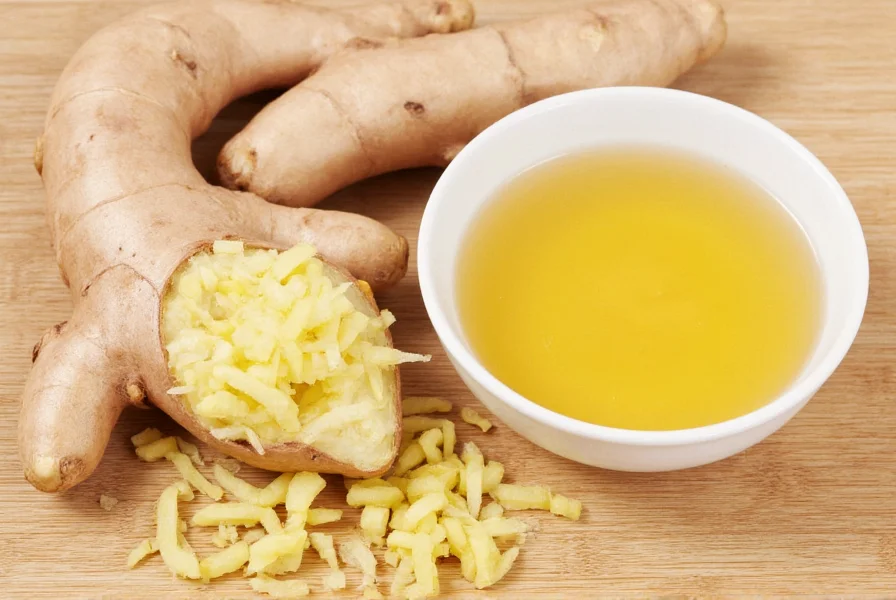For centuries across Asian and Middle Eastern cultures, ginger has earned its place in both medicine cabinets and kitchens. Modern science now validates what traditional healers have known for generations: this knotted rhizome packs remarkable health-promoting properties. The active compounds gingerols and shogaols give ginger its distinctive flavor and therapeutic effects, creating what many call a genuine ginger love relationship.
This validation follows a clear historical trajectory documented in modern research. A 2021 review in Foods traces ginger's therapeutic evolution from ancient Chinese and Ayurvedic medicine (circa 200 BCE) through European herbalism to contemporary clinical validation. Key milestones include the 1973 isolation of [6]-gingerol and subsequent trials confirming efficacy for nausea relief and inflammation reduction, culminating in the European Medicines Agency's 2012 recognition of ginger's medicinal properties for specific indications.
The Science Behind Ginger's Health Benefits
Multiple clinical studies demonstrate ginger's effectiveness for various health concerns. Research published in the Journal of Medicinal Food confirms ginger's ability to reduce inflammation markers by inhibiting pro-inflammatory cytokines. This makes it particularly valuable for managing conditions like osteoarthritis and muscle soreness.
When exploring why ginger is good for digestion, scientists point to its ability to accelerate gastric emptying. A study in European Journal of Gastroenterology & Hepatology found ginger reduced dyspepsia symptoms by 25% compared to placebo. The compound [6]-gingerol stimulates digestive enzymes while calming intestinal spasms.
Patient-reported outcomes reveal critical real-world effectiveness patterns. In a 2015 clinical trial monitoring medication-induced nausea, 87.5% of ginger users reported symptom improvement versus 32% in the control group, demonstrating significant therapeutic alignment with clinical measurements.
| Health Benefit | Scientific Evidence | Recommended Daily Amount |
|---|---|---|
| Nausea relief | 80% reduction in pregnancy-related nausea (Obstetrics & Gynecology) | 1-1.5g fresh ginger |
| Anti-inflammatory | 30% decrease in muscle pain after exercise (Journal of Pain) | 2g powdered ginger |
| Digestive support | 25% improvement in gastric motility (European Journal of Gastroenterology) | 1-2g fresh ginger |
Culinary Applications That Foster Ginger Love
Understanding how to use fresh ginger in cooking transforms ordinary dishes into extraordinary experiences. Chefs recommend grating ginger finely for even distribution in sauces, or slicing thinly for teas and broths where gradual flavor release matters. The rhizome's pungency balances beautifully with sweet elements like honey or citrus, explaining its prevalence in both savory stir-fries and gingerbread.
For those cultivating ginger love through daily consumption, consider these practical approaches:
- Grate 1 teaspoon of fresh ginger into morning smoothies
- Add sliced ginger to hot water with lemon for immune-boosting tea
- Include minced ginger in salad dressings for zesty flavor
- Use ginger paste as base for curries and marinades

Ginger Supplements vs. Fresh Ginger: Making Informed Choices
When weighing ginger supplements versus fresh ginger, consider bioavailability. Whole ginger contains gingerols that convert to more potent shogaols when heated or dried. Supplements standardize these compounds but lack the synergistic effects of the whole root. For general wellness, fresh ginger provides additional fiber and nutrients beyond isolated compounds.
Those exploring daily ginger consumption benefits should note that 1-3 grams daily represents the therapeutic range used in most studies. Exceeding 4 grams daily may cause heartburn or interact with blood-thinning medications. Pregnant women should consult healthcare providers before consuming more than 1 gram daily.
Developing Your Own Ginger Love Relationship
Cultivating genuine ginger love requires understanding its proper storage and preparation. Keep unpeeled ginger in a paper bag in the refrigerator for up to three weeks, or freeze it for longer storage. When selecting ginger, choose firm, smooth roots with tight skin—avoiding any with wrinkles or soft spots.
For maximum benefit, combine ginger with black pepper which enhances absorption of its active compounds. Try this simple preparation method for ginger tea preparation: simmer 1 inch of sliced ginger in 2 cups water for 15 minutes, strain, then add lemon and a touch of honey.

Practical Applications and Limitations of Ginger Therapy
Ginger demonstrates context-dependent efficacy that requires careful consideration of clinical scenarios. Per the European Medicines Agency's 2012 assessment, ginger shows significant effectiveness for:
- Acute nausea management (pregnancy, motion sickness, postoperative)
- Mild osteoarthritis pain with consistent 3-6 month usage
- Exercise-induced muscle soreness within 24-48 hours
However, limitations exist in these specific contexts:
- Minimal impact on severe inflammatory conditions like rheumatoid arthritis as monotherapy
- Reduced efficacy for chronic digestive disorders (Crohn's disease, ulcerative colitis)
- Negligible effects on nausea from high-emetic-risk chemotherapy
Special populations require medical consultation:
- Anticoagulant users: Ginger may potentiate bleeding risk (monitor INR levels)
- Gallstone patients: Bile stimulation may trigger colic episodes
- Preoperative patients: Discontinue 2 weeks prior to surgery
The journey toward genuine ginger love involves recognizing both its remarkable properties and appropriate usage boundaries. By incorporating ginger thoughtfully into your wellness routine, you join a global community that has valued this extraordinary root for millennia.










 浙公网安备
33010002000092号
浙公网安备
33010002000092号 浙B2-20120091-4
浙B2-20120091-4